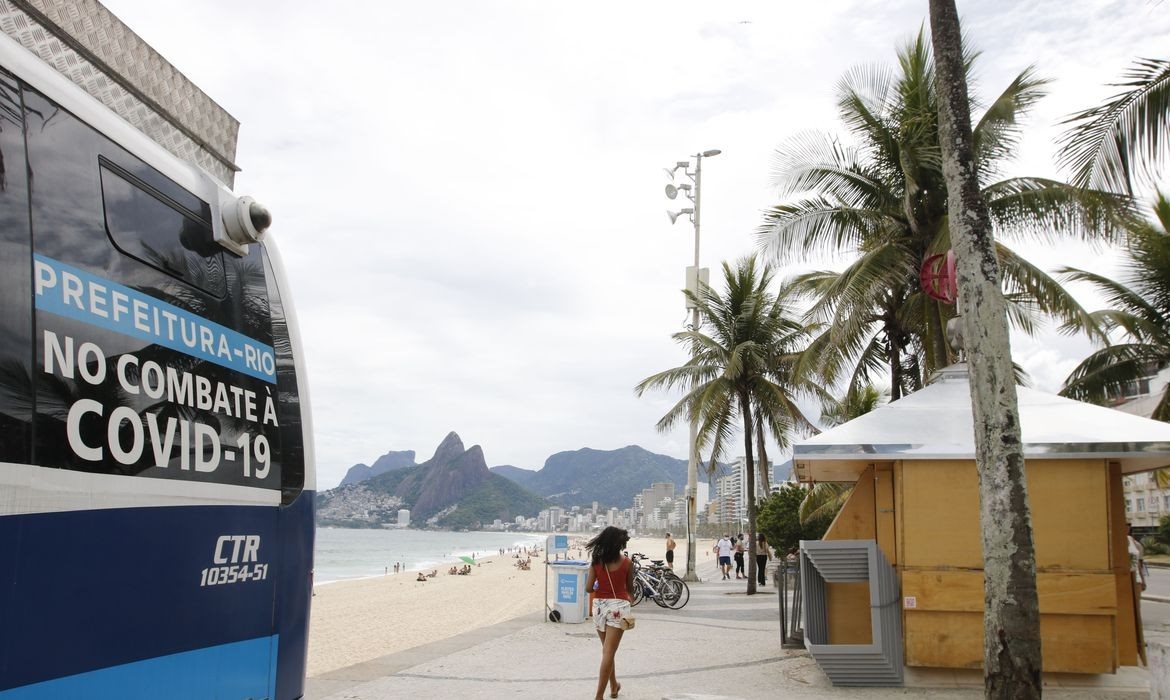RIO DE JANEIRO, BRAZIL – The Rio de Janeiro City Hall has relaxed a number of restrictive measures to prevent the spread of the novel coronavirus in the city. This Friday, May 28, Mayor Eduardo Paes published a decree in the city’s Official Gazette with rules that will remain in force until June 14.

With the changes, the ban on live music in bars and restaurants was lifted, and these may now operate until 11 PM. Consumption in bars, snack bars, restaurants, waterfront kiosks and the like is allowed only for seated customers, and the distance between tables, which was 2 meters, is now 1.5 meters, limited to 8 occupants.
Group classes in gyms, swimming pools, training and physical fitness centers are allowed, but limited to 1 person per 4 m2.
The decree does not mention the ban on chartered buses from other municipalities entering the city, which was previously forbidden.
Permitted activities:
Commercial activities and services in shopping malls, shopping centers and department stores, museums, libraries, cinemas, theaters, party venues, arcades, circuses, children’s recreation centers, amusement, theme and water parks, skating rinks, entertainment, sightseeing, aquariums, zoos, performances, drive-ins, trade shows and conferences, exhibitions, and authorized events need to meet criteria such as preventing lines, maintaining a maximum capacity of 40% in closed venues and 60% in open spaces, and a minimum distance of 1.5 meters between participants.
Banned activities:
Nightclubs, dance clubs, and dance halls are still not allowed to operate. Parties that require a temporary permit are also banned in both public and private areas.
Municipal Health Secretary Daniel Soranz said that the municipality currently counts 1,300 patients hospitalized with Covid-19, but requests for new hospital admissions have decreased. There are also fewer severe cases of the disease in hospitals, particularly in the age groups of people who have already been vaccinated. The secretary said that caution is still needed.
“The effect of vaccination is starting to appear much faster, but we still need to be cautious. That is why we have extended most restrictive measures in the city of Rio de Janeiro. The measures are in place and it is very important that people continue wearing masks, preventing crowds, following all hygiene measures, in order to avert the spread of the disease, but also of the other flu syndromes that will emerge in the winter period,” he said, while attending the presentation of Rio de Janeiro’s 21st Epidemiological Bulletin today, May 28.
According to Soranz, the change in the distancing between tables in bars, restaurants and snack bars was decided because there was a reduction in the Covid-19 infection rate in the capital, but the sanitary protections need to be respected.
“Masks must be worn, a distance between tables must be maintained, and hand sanitizer must be used. Parties and nightclubs are not allowed. In some exceptions, with a request sent to the Health Surveillance it will be analyzed, but we aren’t authorizing any parties and we don’t intend to authorize them at this time.”
Masks
According to the secretary, flexibilization is “modest” because it is not yet time to lift all restrictions. According to him, the city has set up a number of measures to monitor the points that tend to attract crowds in the city. He said that the mayoralty expects the population to comply with the decree, and said that over 10,000 people have been fined for not wearing masks.
“We hope that these fines will be reduced and that people will begin to understand the moment we are experiencing. We can’t understand how people can completely ignore the risks of Covid transmission and go around without masks, crowd together and endanger their health and the health of the population,” said Soranz.
Public in stadiums
According to the secretary, it is not yet the time to authorize the presence of public in stadiums for the Brazilian soccer championship. “We have many people hospitalized for Covid-19,” he said. He recalled that several countries are authorizing public in stadiums, but these are countries with better vaccination coverage than Brazil, and they do this under very strict protocols.
“I think we might think about heading towards that at some point, but now we need to see if the vaccine effects will succeed in blocking the entry of new variants or otherwise block the seasonal period, which is winter.” Soranz also recalled that, in general, the winter period is very critical for influenza, and for Covid-19.

